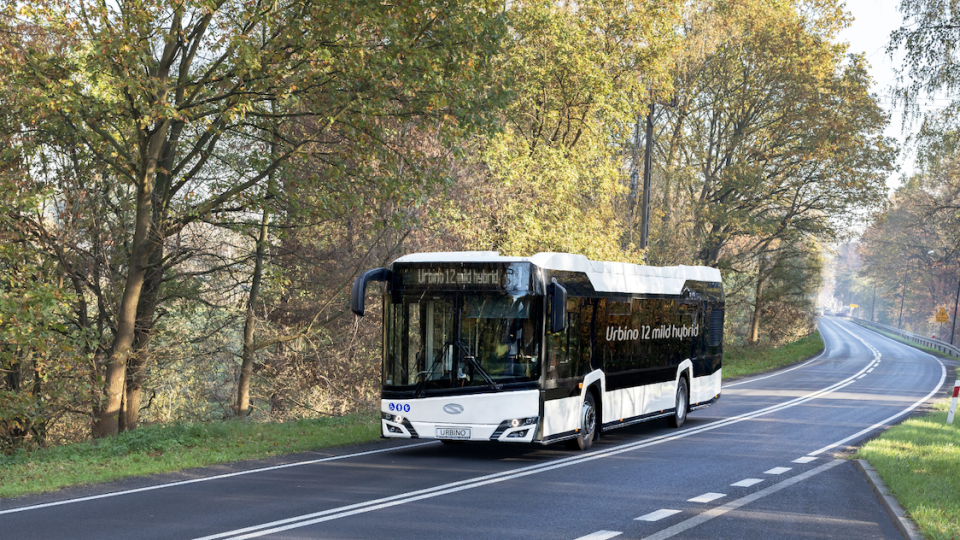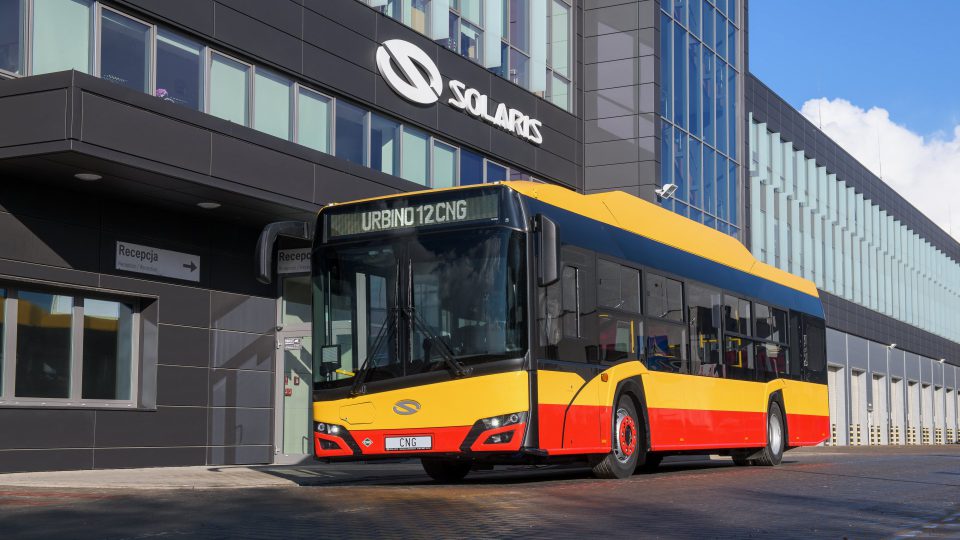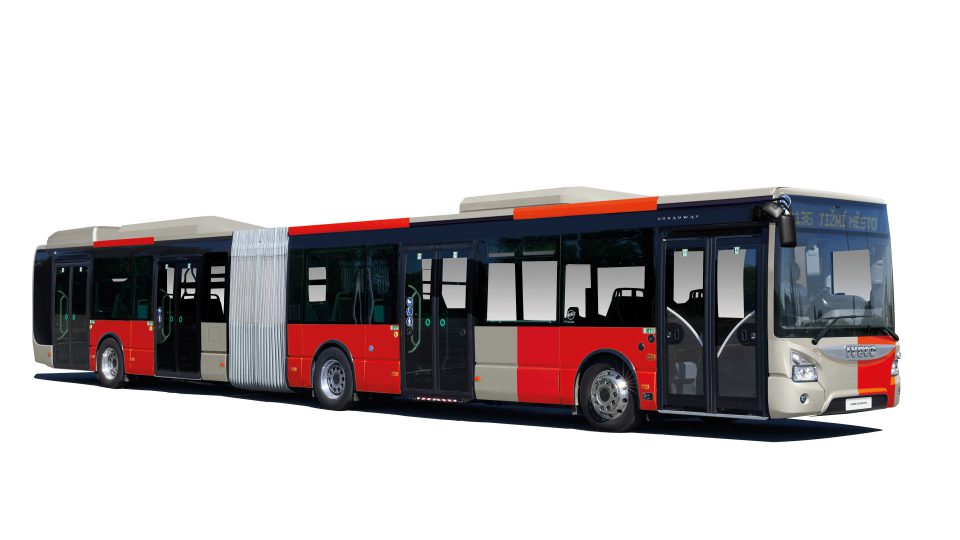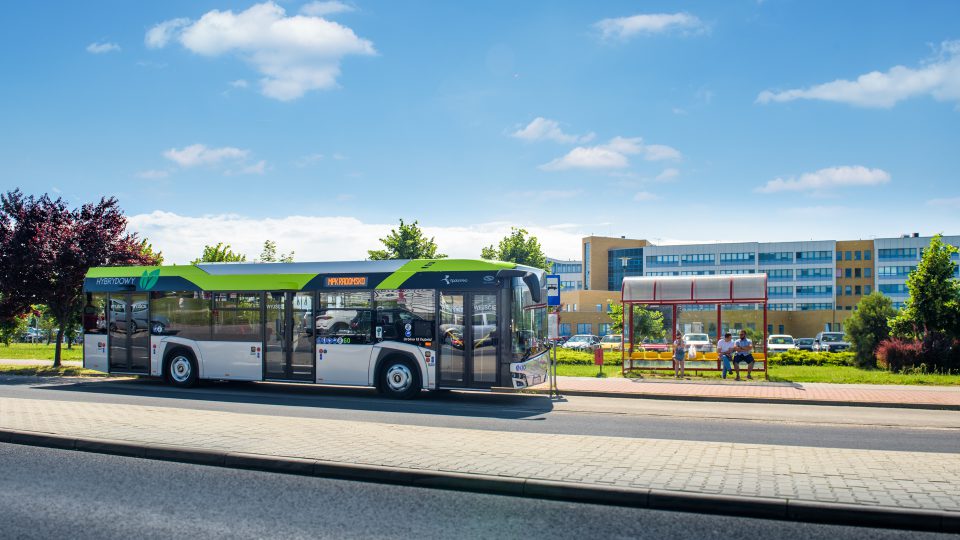Volvo Buses and hybridization in Poland: seven 7900 Electric Hybrid to Grudziądz
The city of Grudziądz in northernd Poland has signed a contract for the delivery of seven Volvo 7900 Electric Hybrid buses (plugin hybrids), that will occur in spring 2019. Charging stations will be delivered by Heliox. The buses are equipped with a 5 litres diesel engine and a 150 kW electric motor. Battery’s capacity is […]
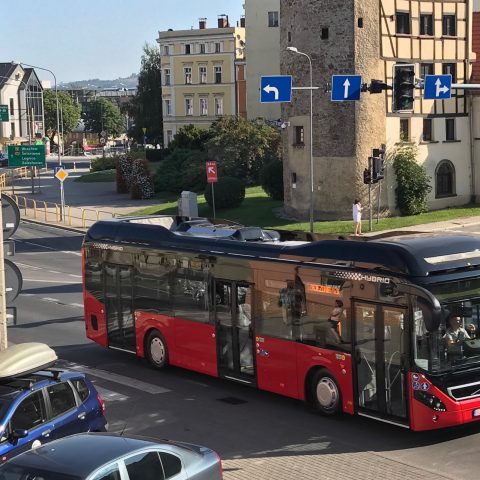
The city of Grudziądz in northernd Poland has signed a contract for the delivery of seven Volvo 7900 Electric Hybrid buses (plugin hybrids), that will occur in spring 2019. Charging stations will be delivered by Heliox. The buses are equipped with a 5 litres diesel engine and a 150 kW electric motor. Battery’s capacity is 19 kWh. Earlier this year, Inowroclaw ordered eight electric hybrids and eight fully electric buses from the Swedish manufacturer. In total, Volvo has now sold 112 electrified buses in Poland.
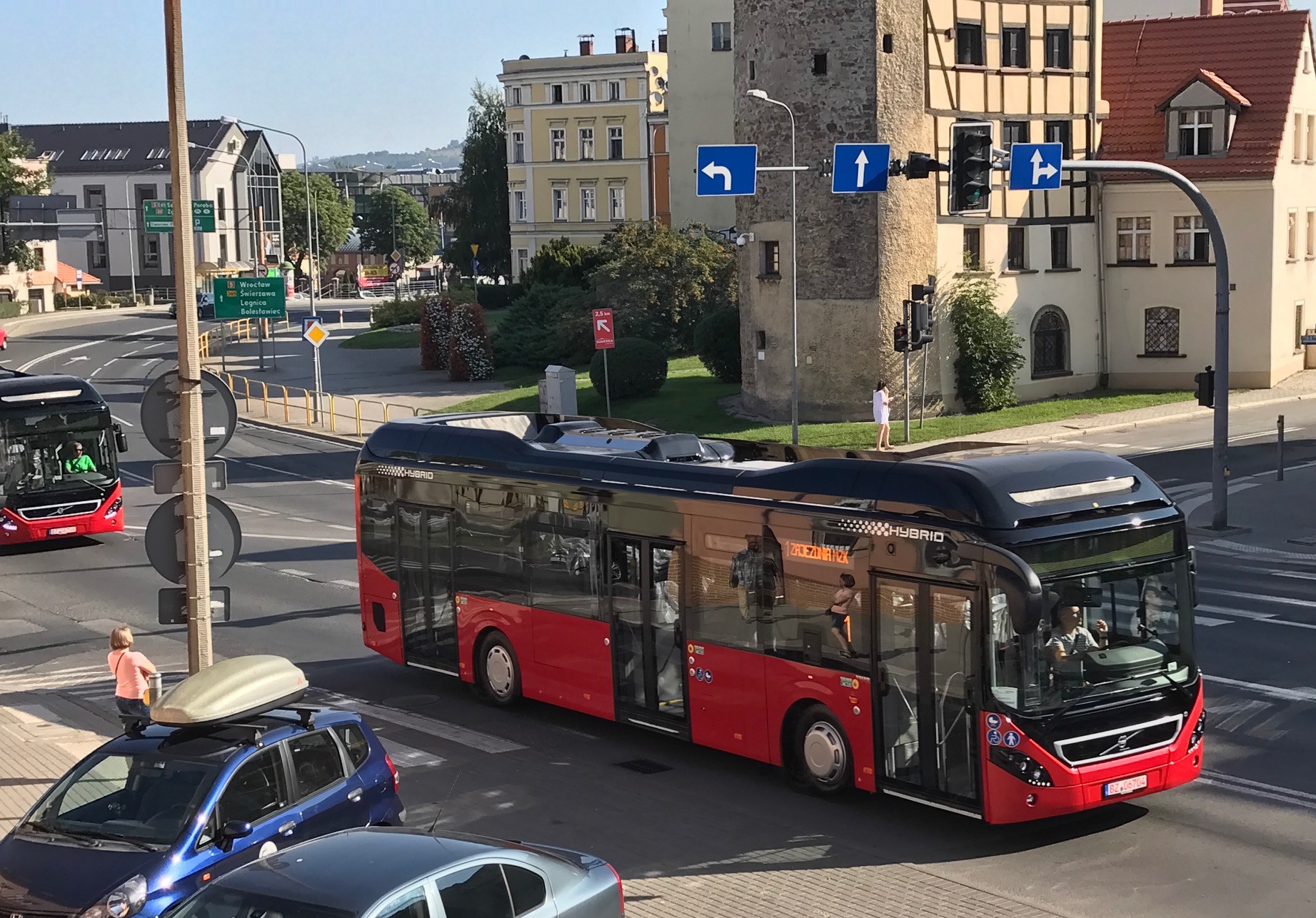
Volvo and Heliox for the “hybridization”
Hybrid buses are not a common choice around Europe. According to Bloomberg New Energy Finance, in Europe the choice of full electric buses appears to be dominant (74% of the current electric fleet of 2,100 vehicles). The buses will be fast charged at the end stops via pantograph. The charging stations, which will be delivered by Heliox, will be based on the common interface OppCharge, whereby the charging stations can also be used by electrified buses from other vehicle manufacturers too. The electric motor I-Sam of Volvo 7900 Electric Hybrid provides a maximum output of 150 kW (1,200 Nm is the peak torque). The battery can store up to 19 kWh. An average electric bus can cover around 10 km with this amount of electricity.
Hybrid bus and diesel engine’s downsizing
Energy consumption for Volvo’s electric hybrid buses is about 60 percent lower than for corresponding diesel buses, states the press release by Volvo Buses. Emission of carbon dioxide is reduced by 75 to 90 percent. The electric hybrid can run in electric mode for about 70% of the route. The Volvo 7900 Electric Hybrid can run as an electric bus in selected areas, and the small diesel engine (D5K240, Euro VI, 5,1 litres) offers extended range in line-operation. The buses will be delivered to Grudziadz in the spring of 2019. Manufacturing will take place in Volvo’s factory in Wrocław, Poland.
Volvo Buses, bus stops in closed places is the future
The electric hybrid buses are being sold as a turnkey package whereby Volvo takes care of all vehicle and battery maintenance. “This solution allows for a completely different perspective of the city planning. It is possible to create zero-emission, exhaust-free zones since the electric hybrid has the ability to drive fully electrically in such zones. It opens up for bus stops inside, for example, shopping malls and hospitals,” says Małgorzata Durda, Bus Manager, Volvo Buses Poland. Volvo hybrid buses have previously been delivered to the cities of Wrocław, Sosnowiec, Inowrocław, Jelenia Góra, Tarnowskie Góry and Warsaw, and recently the company won tenders for the delivery of hybrid buses to Kraków, Białystok and Krosno. Last year, Volvo delivered 35 hybrids to Sosnowiec; to date the largest fleet of hybrid buses in Poland.



